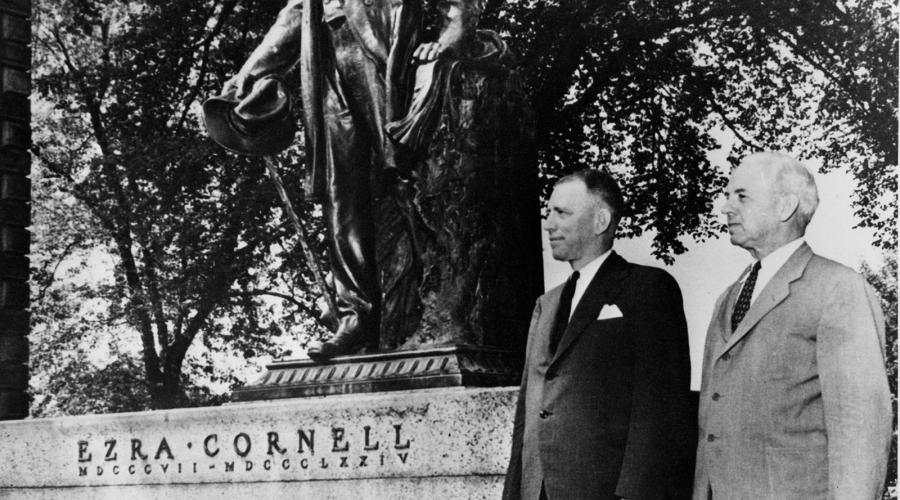
Irving M. Ives
ILR's first dean who became a United States Senator
"The school deals with the employment relationship in all its manifold guises." so a later Dean, David Lipsky, summarized the mission of the ILR School established with its first Dean, Irving Ives. Ten years before, as a politician from a largely rural upstate district, there had been little to indicate that Ives would lead efforts to address, let alone study, employment relationships in the round.
Ives became majority leader of the New York State Assembly in 1937, a year that would see time lost to strike action balloon from 12,901,956 days in 1936 to 28,424,857. His political antenna need not have been very acute to pick up the increasing urgency around stoppages. Tutored by leading New York labor leaders, especially William B. Groat, Ives began to entertain ideas of a state school that would both teach and study employment relations in the late 1930s.
Creating a school dedicated to such a sensitive, even explosive, topic took time. Troubled waters had to be smoothed and institutional concerns quelled. Some ideas, such as locating the school in New York City, were set aside. The City was seen as too volatile to provide a home for reflective study and education on labor-management matters. Ives saw the wisdom in an Ithaca location for the School, at arms length from any of New York's major industrial cities. He had met Cornell president Edmund Ezra Day, impressing the scholar with his capacity to get people in room and hash matters out. For his part, Day had to persuade his Trustees that such a school would fit Cornell. Using an initial 1942 legislative sanction to create a school, the war provided an opportune rationale for delay that did not imply stagnation. By June 1945, Day had managed it and he was central in securing Ives for the deanship.
Ives' interests, however, remained political. His Assembly leadership on Labor issues had borne fruit immediately before his arrival at Cornell with 1945's Ives-Quinn Act, widely known as New York's Fair Employment Practices Act, which made first-in-the-nation prohibitions on racial and religious employment discrimination. Within a year, he announced his intention of running for the United States Senate and won, in November 1946, prompting him to resign before getting on the train to Washington. After two terms in the Senate, Ives refused to run again. He died in 1962.
While his tenure at Cornell may have been brief, the School was in no small part the result of his investment in a studied, informed approach to employment relations. The professorship named in honor of Irving M. Ives was created by Cornell's Board of Trustees in 1985.
See also: McKersie, Robert B.; Miller, J. Gormly; Aronson, Robert L.; Julian, Robert R. (1996), The ILR School at Fifty: Voices of the Faculty, Alumni & Friends, p. 3, 9-20; https://hdl.handle.net/1813/87996.
